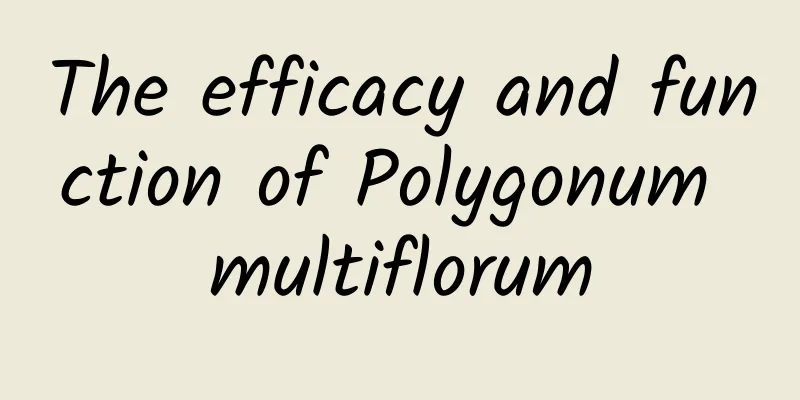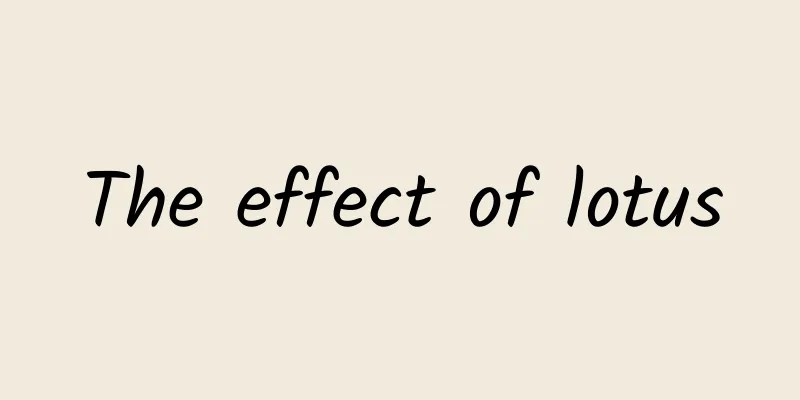The efficacy and function of Polygonum multiflorum

|
Any disease can cause great harm to human health, so a good treatment method is needed for the treatment of the disease. Medicine is the best choice for treating diseases, but there are great differences in the choice of medicines for different diseases. So what are the effects and functions of Polygonum multiflorum? Polygonum multiflorum is a good choice for treating diseases. At the same time, when choosing it, you also need to have a comprehensive understanding of it. So what are the specific effects and functions of Polygonum multiflorum? Polygonum multiflorum is a good choice for treating cardiovascular and cerebrovascular diseases in middle-aged and elderly people. It is also very helpful in the treatment of such diseases. However, it is also necessary to master certain methods and techniques in its use. The efficacy and function of Polygonum multiflorum: Prevention and treatment of cardiovascular and cerebrovascular diseases: Anthraquinones in Polygonum multiflorum have the effects of lowering cholesterol, lowering blood sugar, resisting viruses, strengthening the heart, promoting gastrointestinal motility, and promoting fibrinolytic activity, and have a certain preventive and therapeutic effect on cardiovascular and cerebrovascular diseases. Delaying aging, strengthening the body, and protecting the heart: The lecithin contained in Polygonum multiflorum is a component of brain tissue, blood cells and other cell membranes. Regular consumption of Polygonum multiflorum has a therapeutic effect on neurasthenia, gray hair, hair loss, anemia and other diseases. Therefore, it can delay aging, strengthen the body, and protect the heart. Prevention of atherosclerosis: Modern pharmacological research has found that the lecithin, anthraquinone derivatives, chrysophanol and other substances contained in Polygonum multiflorum can inhibit the increase of cholesterol, reduce the absorption of cholesterol in the intestine, prevent the deposition of cholesterol in the tissues, and thus alleviate the formation of atherosclerosis. Clinical studies have confirmed that its total effective rate in lowering cholesterol and triglycerides is more than 80%. Through the above introduction, we have some understanding of the effects and functions of Polygonum multiflorum. We should also be careful when choosing such medicines. If you are not suitable for such medicines, you should not use them forcibly. This will cause great harm to human health. Not only will it not cure the disease, but it will also cause other harms. |
<<: The effect of Albizia Julibrissin
>>: The efficacy and function of safflower
Recommend
There are more than 6,000 stars visible to the naked eye. Are they all in the Milky Way? Not all of them
It is a wonderful thing to look up at the starry ...
The efficacy and function of Michelia odorata
After thousands of years of sedimentation and acc...
Spicy kiwi? More weird flavors added!
Autumn is here, and it’s time to eat kiwi fruit a...
The efficacy and function of Shifeng medicine
The traditional Chinese medicine Shifeng is often...
The efficacy and function of June cold
What are the effects of Junehan? As a traditional...
The efficacy of deer bite grass
You may not have heard of the medicinal herb Deer...
Is it enough to just take effervescent tablets? You need to supplement these 10 things to enhance your immunity
Contributed by "Cat Doctor Comics"...
The efficacy and function of small lung grass
The traditional Chinese medicine Herba Microphyll...
Did you eat glowing shrimp meat because of nuclear wastewater? Here comes the February science rumor list →
1. If you are nearsighted when you are young, can...
Insomnia = high blood pressure. Did you know that high blood pressure is caused by sleeping?
Sleep problems are plaguing the entire human race...
Do you know the effects of ant grass?
The name ant grass may be unfamiliar to everyone,...
History of human war against epidemics丨He built more than 500 microscopes out of interest, and the "small animals" he recorded shocked the world
Malaria, smallpox, influenza...Epidemics have acc...
What are the precautions for making wine with fresh ginseng?
Ginseng is a relatively precious Chinese medicina...
What are the medicinal properties of seabuckthorn?
When it comes to sea buckthorn, I believe many pe...









